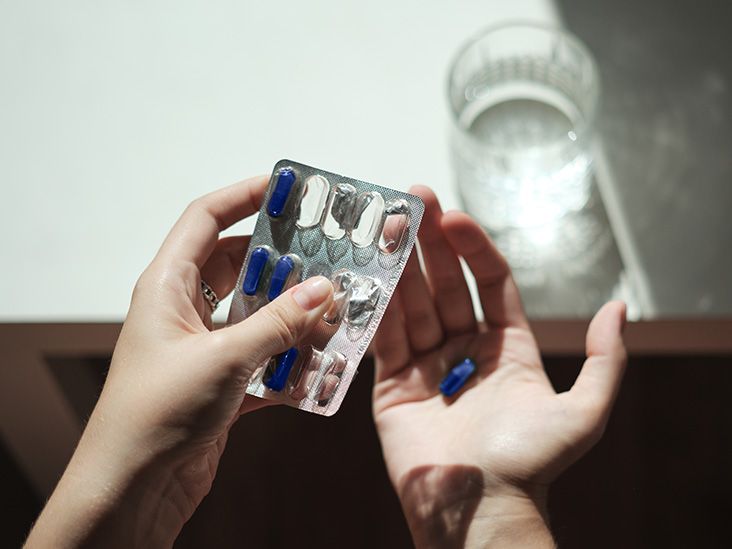Drug-induced hypoglycemia describes when certain drugs may cause blood sugar levels to drop too low. It can occur with diabetes drugs, beta-blockers, alcohol, and certain pain relievers.
Hypoglycemia describes low blood sugar levels. Blood sugar is the main source of energy for the body, and it is necessary to keep it within a safe range for good health.
Low blood sugar levels occur most frequently in people with diabetes. However, it can also occur in people without diabetes. In some cases, taking certain drugs can affect blood glucose levels and result in hypoglycemia. When this occurs, it is known as drug-induced hypoglycemia.

Drug-induced hypoglycemia refers to low blood sugar levels that occur due to medications. Typically, certain drugs may cause hypoglycemia by:
- stimulating insulin release
- altering insulin sensitivity
- reducing insulin clearance
- changing the effect of diabetes medications
- interfering with glucose metabolism
Typically, diabetes drugs commonly cause drug-induced hypoglycemia. These medications lower blood glucose to help manage blood sugar levels. They can include:
- insulin
- sulfonylureas
- metformin
- sodium-glucose cotransporter 2 (SGLT-2) inhibitors
- meglitinides
- thiazolidinediones
- alpha-glucosidase inhibitors
- dipeptidyl peptidase (DPP-4) inhibitors
- incretin mimetics
The American Diabetes Association treatment guidelines highlight that insulin and sulfonylureas as the drugs with the highest risk of hypoglycemia on their own. There are multiple reasons a person may experience low blood sugars when using these drugs, such as miscalculating a dose.
Other diabetes drugs may possess a
In addition to diabetes drugs, alcohol is another drug that can cause low blood sugar levels. Other drugs that can cause hypoglycemia include:
- beta-blockers
- certain antibiotics, such as quinolones and pentamidine
- antimalarial drugs, such as quinine
- angiotensin converting enzyme (ACE) inhibitors
- certain pain relievers, such as tramadol
Individuals living with diabetes, particularly those who take diabetes drugs, are more likely to experience drug-induced hypoglycemia.
A 2019 study notes the following risk factors for drug-induced hypoglycemia:
- being 65 years or older
- having diabetes for more than 1 year
- having more than one comorbid condition
- taking more than one diabetes medication
While some medications can cause hypoglycemia, some can also mask the symptoms of low blood sugar.
For example, beta-blockers can cause hypoglycemia but may mask some common symptoms. Some people may experience a rapid heart rate due to low blood sugar levels. However, beta-blockers can help keep the heart rate low.
As such, a person may not notice this symptom. Despite this, a person can recognize other symptoms of hypoglycemia when taking beta-blockers,
Although uncommon, it is possible for people without diabetes to experience low blood sugar levels. Health experts may refer to this as
Typically, healthcare professionals may classify non-diabetic hypoglycemia as either insulin-mediated or independent of insulin.
Insulin-mediated non-diabetic hypoglycemia refers to when the body overproduces insulin. This may be due to a small tumor in the pancreas or a genetic condition that causes the body to produce too much insulin.
Causes of non-diabetic hypoglycemia that is independent of insulin can include:
- certain drugs
- alcohol
- liver or kidney failure
- hormone problems
- eating disorders
- weight loss surgery
Read on to learn more about hypoglycemia without diabetes.
Symptoms of hypoglycemia can vary between people. Common symptoms include:
- sweating, chills, or clamminess
- confusion
- dizziness
- feeling shaky
- feeling nervous or anxious
- irritability
- rapid heart rate
- hunger
- nausea
- sleepiness
- color draining from the skin
- feeling weak
- blurry vision
- tingling
- headaches
- clumsiness
- nightmares or crying out during sleep
- seizures in severe cases
To treat hypoglycemia, it is advisable to consume fast-acting carbohydrates to increase blood sugar levels.
Specifically, people may follow the rule of 15. This method describes consuming 15 grams (g) of fast-acting carbohydrates, such as glucose tablets, fruit juice, or gummy candies. A person then checks their blood sugar levels in 15 minutes. If they are still experiencing hypoglycemia, they have another 15 g of carbs and wait another 15 minutes to check again.
In more severe cases, a doctor may administer a glucagon injection or use an intravenous sugar solution to quickly raise blood sugar levels.
Read on to learn more about treating hypoglycemia.
If a doctor determines that a certain drug is causing hypoglycemia, they may recommend monitoring blood sugars while taking the drug, adjusting the dose, or switching to a different drug.
Drug-induced hypoglycemia describes when certain drugs cause low blood sugar. Typically, these drugs interfere with how the body regulates insulin and glucose.
Examples of drugs that can cause hypoglycemia include diabetes drugs, antibiotics, beta-blockers, high blood pressure drugs, and antimalarial drugs.
To treat drug-induced hypoglycemia, a person needs to raise their blood glucose. This may be through consuming fast-acting carbohydrates, such as glucose tablets, or receiving a sugar solution intravenously. A doctor may also recommend changing drugs.


